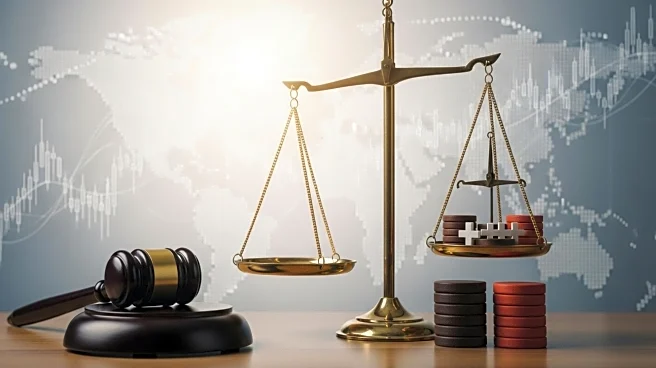What's Happening?
A federal appeals court has ruled that President Trump's tariffs were unlawfully imposed, affirming a previous decision by the Court of International Trade. The court found that Trump's use of the 1977 International Emergency Economic Powers Act to set tariff rates without congressional approval was illegal. Nobel laureate Paul Krugman criticized Trump's approach, calling it a 'self-inflicted disaster.' The ruling challenges the legal basis for the tariffs, which have been a key component of Trump's trade policy. The decision could lead to significant economic and legal repercussions.
Why It's Important?
The ruling poses a major challenge to Trump's trade strategy, which has been central to his administration's economic agenda. The decision could result in the refunding of billions in tariff revenue, impacting federal finances and potentially leading to economic instability. The ruling highlights the limits of presidential power in trade matters and could influence future administrations' approaches to trade policy. The potential appeal to the Supreme Court could set a precedent for the extent of executive authority in economic matters, affecting U.S. trade relations and economic policy.
What's Next?
The ruling is set to take effect on October 14, but the Trump administration is expected to appeal to the Supreme Court. If the appeal is unsuccessful, the government may have to refund collected tariffs, affecting federal revenue. The decision could prompt a reevaluation of trade policies and strategies. Stakeholders, including businesses and international trade partners, will be closely monitoring the developments, as the outcome could have significant implications for global trade dynamics and U.S. economic policy.










